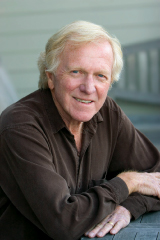Two weeks ago, I completed jury duty at the Marin County Hall of Justice. I write about it now because the experience revealed a side of supposedly liberal Marin that is costing the county unnecessarily.
The trial involved charges of driving under the influence of alcohol and marijuana. “You are to determine if the state has proven, beyond a reasonable doubt, that the defendant was incapable of driving with the care and caution of a sober person,” Superior Court Judge James Ritchie instructed us.
On July 7, 2005, the defendant, then a 59-year-old Sonoma PE instructor, was pulled over for going 80 in a 65 mph zone on Highway 37 in Novato. No one contested that the hour was just past midnight, traffic was sparse, and erratic driving was not an issue. However, according to the prosecution, upon approaching the defendant the California Highway Patrol officer “smelled alcohol on his breath and marijuana inside his car.”
The defendant acknowledged smoking pot earlier and having “two and a half glasses of wine” before leaving a San Francisco nightclub at 11:15 p.m. An hour later, after he was pulled over, two Breathalyzer tests showed a blood alcohol level of 0.07. Then at 2 a.m., after the driver been taken to the CHP office in Corte Madera, a blood sample indicated an alcohol level of 0.06. It is illegal to drive with a blood alcohol level of 0.08 or higher. At present, there is no scientific way to measure marijuana consumption.
Still, it was the combination of the alcohol and marijuana that concerned the officer. He testified that the defendant’s eyes were bloodshot, that he’d fumbled while locating his driver’s license and that he performed poorly on field sobriety tests, e.g., putting finger to nose and closing your eyes, putting your head back and estimating when 30 seconds had passed. “He was off by two seconds,” stated the officer.
While en route to Corte Madera, the officer radioed for a “drug recognition expert,” who then interviewed the defendant and performed additional dexterity tests. As a result, despite the defendant claiming (and later testifying) that his bloodshot eyes and questionable dexterity were the result of six major eye operations, he was arrested and spent the night in jail.
Four years later (the delay was never explained) the defendant was facing possible jail time, suspension of his driver’s license, tripling of his insurance costs, a $1,700 fine, a DUI on his record, and attorney fees that could easily reach $15,000 or more.
However, the Marin County District Attorney’s Office spent more than that attempting to prove him guilty. In addition to two CHP officers appearing as witnesses, a phlebotomist flew in from Illinois, a drug toxicologist drove over from Sacramento, and an alcohol toxicologist came down from Santa Rosa. Then, in addition to Judge Ritchie, present in the courtroom for the four days were a court reporter, a clerk, a bailiff and a county prosecutor.
After our 12-person jury had deliberated for four hours, we determined we were “hopelessly deadlocked.” Half felt driving after smoking pot and drinking wine couldn’t help but render a driver less careful than one who had not ingested these intoxicants. And six (me included) felt strongly that the prosecution had not convinced us, beyond a reasonable doubt, that this scenario was the case. Interestingly, no one changed his/her initial position during the deliberations. We returned to the courtroom and sheepishly reported our stalemate.
Was the trial necessary? Frankly, I felt that after a night in jail, the defendant should have been sternly warned, sent to traffic school, driven to his car and released. Instead, considerable county time and money was expended—and for what? It was a very subjective charge. In fact, once we were dismissed, Judge Ritchie told us jurors, “These are difficult cases to win”
Since then, I’ve learned Marin is the only county in California where a case like this would be tried without a lesser charge instead being offered. “For many years,” says Paul Burglin, author of California Drunk Driving Law and defense attorney in this case, “the county prosecutor has not allowed pleading to a reduced charge of alcohol-related reckless driving in these low-blood-alcohol cases.” That policy is costing Marin unnecessarily; it’s time for a change.
That’s my point of view. What’s yours?
Email: [email protected]


